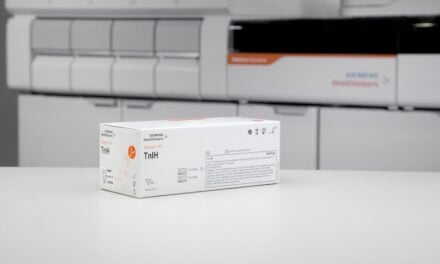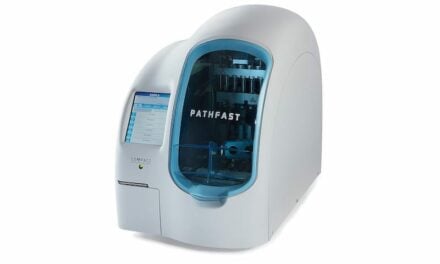Karius, a provider in liquid biopsy for infectious diseases, announced the inclusion of the Karius Test in the 2023 Duke-ISCVID Criteria for Infective Endocarditis by the International Society of Cardiovascular Infectious Diseases (ISCVID).(1) Using microbial cell-free DNA from a single blood draw, the Karius Test can detect over 1,000 pathogens, including pathogens responsible for infective endocarditis.
Infective endocarditis is a serious condition that results from an infection leading to inflammation of the heart’s lining, valves, or blood vessels. Untreated, it is uniformly fatal. Traditional diagnostic methods, such as blood cultures, can take several days (2) to yield results, often fail to identify the underlying pathogen causing an infection, (3) and positivity rates are decreased due to prior antimicrobial therapy.(4) The Duke Criteria was introduced 30 years ago by leading medical experts to enhance and standardize the diagnosis of infective endocarditis. The Criteria has been periodically updated to incorporate technological advances and research discoveries.
Infective Endocarditis Diagnostic Criteria
The latest version of the criteria — produced by a working group of 25 subject matter experts from five continents and six infective endocarditis-related subspecialties — has for the first time included hypothesis-free metagenomics sequencing, the technology behind the Karius Test, for fast identification of hard-to-detect pathogens. Specifically, the new Duke-ISCVID Criteria recognizes the high importance of this type of sequencing found in the Karius Test when blood cultures fail to identify a causative pathogen. This acknowledges the Karius Test’s ability to quickly detect difficult-to-diagnose causes of endocarditis such as C. burnetii, Bartonella species, and T. whipplei.
Further reading: Karius Receives NYS Permit for Liquid Biopsy Test
The working group based their recommendations on multiple studies demonstrating the ability of the Karius Test to rapidly detect these pathogens within a day of specimen receipt. For example, studies have shown that the Karius Test has a higher diagnostic yield than standard testing for identifying causative pathogens in patients with endocarditis (80% yield for Karius Test vs. 30% for blood culture5, n=10) and that the Karius Test can detect the causative pathogens over a much longer period than blood culture (38.1 days for the Karius Test versus 3.7 days for blood culture4, n=19). The new Criteria were published in Clinical Infectious Diseases.
“Increases in infective endocarditis6 and challenges in diagnosis increases risk for poor health outcomes,” says Brad Perkins, MD, chief medical officer of Karius. “These updated guidelines reflect our real-world experience with use of the Karius Test for infective endocarditis as an important tool for physicians to rapidly and more accurately diagnose and manage infective endocarditis as well as other serious infections, particularly among immunocompromised patients. We appreciate the efforts of these experts for recognizing the growing importance of plasma microbial cell-free DNA metagenomic sequencing as an important new diagnostic test for infective endocarditis patients.”
References:
1. Fowler V. et al, The 2023 Duke-International Society for Cardiovascular Infectious Diseases Criteria for Infective Endocarditis: Updating the Modified Duke Criteria. Clinical Infectious Diseases, 2023;, ciad271, https://doi.org/10.1093/cid/ciad271
2. Liesman RM, Pritt BS, Maleszewski JJ, Patel R. Laboratory Diagnosis of Infective Endocarditis. J Clin Microbiol. 2017 Sep;55(9):2599-2608. doi: 10.1128/JCM.00635-17.
3. Vogkou CT, et al. Eur J Clin Microbiol Infect Dis. 2016 Aug;35(8):1227-45.
4. Eichenberger EM, et al. Clin Infect Dis. 2022 Jun 10:ciac426.
5. To et al. Pediatr Infect Dis J. 2021 May 1;40(5):486-488.
6. Chen H, Zhan Y, Zhang K, Gao Y, Chen L, Zhan J, Chen Z, Zeng Z. The Global, Regional, and National Burden and Trends of Infective Endocarditis From 1990 to 2019: Results From the





